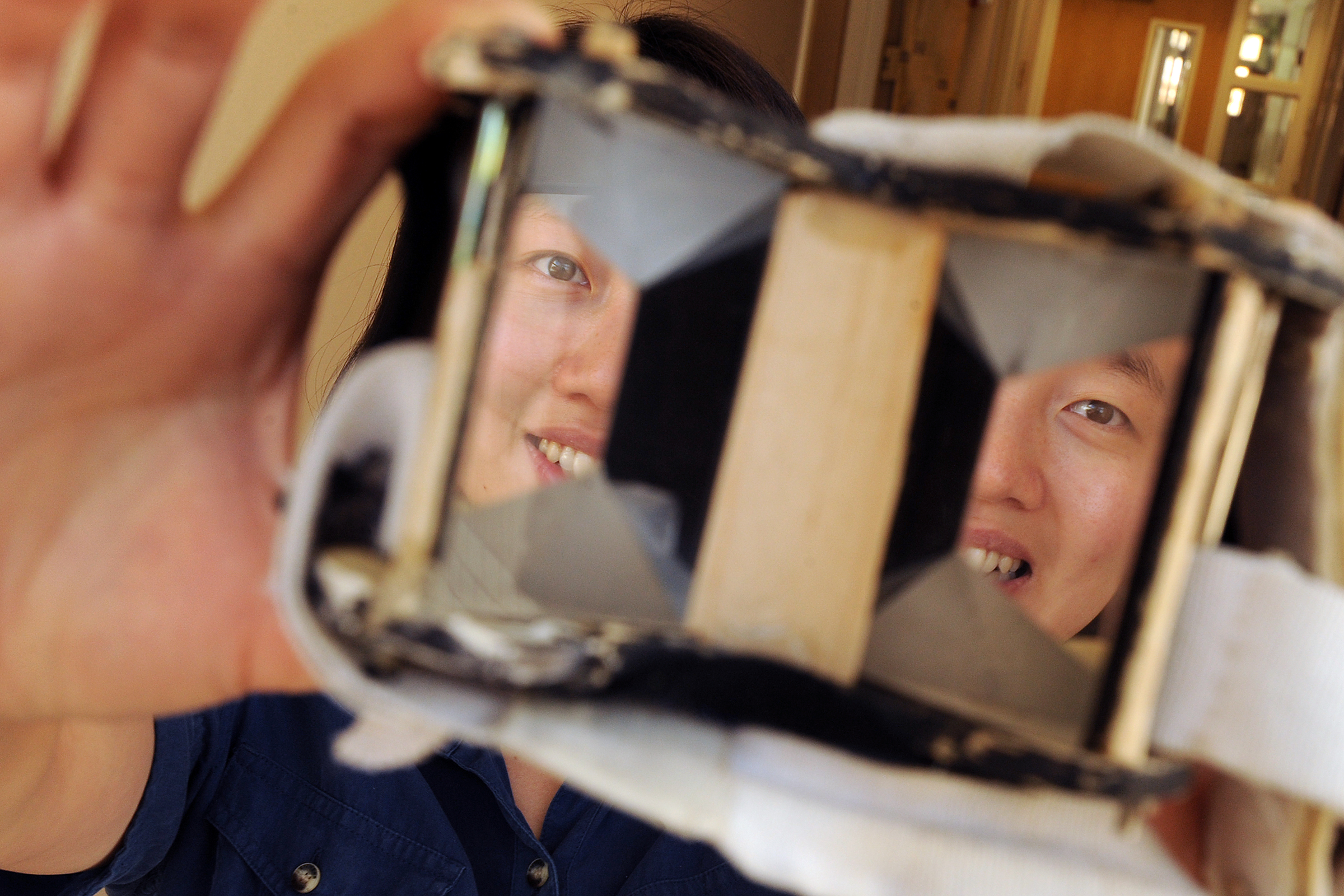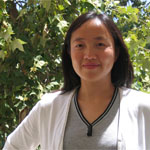Seeing the world from a different angle

Seeing the world from a different angle
- August 4, 2008
- Inaugural recipient of the Center for Cognitive Neuroscience's (CCNS) summer fellowship studies what it's like to see - and understand - the world in reverse
-----
 People generally wear glasses in order to see more clearly. Ling Lin, fifth year cognitive
sciences graduate student, is looking for quite the opposite effect through the lenses
of her soon to be designed spectacles.
People generally wear glasses in order to see more clearly. Ling Lin, fifth year cognitive
sciences graduate student, is looking for quite the opposite effect through the lenses
of her soon to be designed spectacles.
As the inaugural recipient of the Center for Cognitive Neuroscience's (CCNS) summer
fellowship, Lin will be studying what it's like to see - and understand - the world
in reverse. Wearing left-right reversing prism spectacles, or what some refer to as
"upside down glasses" or "reversing prism glasses," she will be able to see the world
as if looking in a mirror.
The experiment is part of her overall research to determine how our brains process
information and adapt when what we see differs from reality.
"When we reach for something, like a pen, we first process where it is visually and
then formulate an action on how to grab it based on where we see it," she says. "When
wearing the glasses, however, visual input and motor output won't correspond to one
another because the pen that used to be on the right side will now appear to be on
the left."
Working with Alyssa Brewer, cognitive sciences assistant professor and expert on the
applications of fMRI technology, Lin will monitor brain activity and patterns of individuals
in a normal environment while performing a task, such as locating and reaching for
a pen. She will then monitor how brain activity changes when the same individuals
don the spectacles and see everything in the opposite direction of where it appears
to be located.
"After time, our brains have the ability to adapt to something as dramatic as completely
reversing our environment," she says, citing a similar experiment performed back in
the late 1800s.
By studying which parts of the brain activate when making this mental adaptation,
Lin hopes to contribute to existing visuomotor research and its possible application
for individuals with spatial deficiencies such as hemispatial neglect, a neurological
disorder exhibited by individuals who have suffered from a stroke.
Her study will begin this summer and run through 2009.
About the Center for Cognitive Neuroscience: Established in 2005, the CCNS promotes research aimed at understanding the relationship
between cognitive abilities and the neural systems that support them. The Center's
21 core faculty utilize fMRI, EEG, MEG, and TMS technology to pursue research in areas
of attention, auditory and visual perception, motor control, learning and memory,
and speech and language. The newly developed CCNS summer fellowship is planned to
be offered each year to students interested in exploring "out of the box" research.
For more information, please visit http://www.ccns.uci.edu/.
-----
Would you like to get more involved with the social sciences? Email us at communications@socsci.uci.edu to connect.
Share on:
Related News Items
- Careet RightNotes from a future professor
- Careet RightCan Opportunity Zones ever meet their poverty-fighting promise?
- Careet RightFei Yuan named one of ten global China Times Young Scholar Fellows
- Careet Right'Wired for Words: The Neural Architecture of Language,' an excerpt
- Careet RightEveryone's looking for a partner who has these 3 traits, according to research


